
Bounty Bay Settlement: A Hidden Gem in the Pacific
Nestled in the heart of the South Pacific, Bounty Bay Settlement on the Pitcairn Islands offers a unique and serene escape from the hustle and bustle of modern life. This remote settlement is home to descendants of the famous mutineers of HMS Bounty, adding a layer of historical intrigue to its natural beauty. With a population of less than 50, the community is close-knit, welcoming, and eager to share their island paradise with visitors. The island’s rugged landscape is a hiker’s dream, with trails leading to breathtaking viewpoints and secluded beaches. The clear, turquoise waters of the bay are perfect for snorkeling and diving, revealing a vibrant underwater world teeming with marine life. For those interested in history, a visit to the Bounty’s anchor and the island’s museum provides fascinating insights into the island’s storied past. Bounty Bay Settlement’s charm lies in its simplicity and connection to nature. The lack of modern amenities is a draw for those looking to disconnect and recharge in a pristine environment. The island’s small size means that everything is within walking distance, making it easy to explore and immerse yourself in the slow pace of island life.
Local tips in Bounty Bay Settlement
- Plan ahead: Due to the island's remote location, travel arrangements must be made well in advance.
- Bring essentials: There are no stores on the island, so pack all necessary supplies, including medications and personal items.
- Respect local customs: The islanders are hospitable but value their privacy and traditions.
- Stay connected: Wi-Fi is limited, so inform family and friends about your plans and expected communication gaps.
- Enjoy nature: Bring comfortable shoes for hiking and snorkeling gear to fully experience the island’s natural beauty.
Bounty Bay Settlement: A Hidden Gem in the Pacific
Nestled in the heart of the South Pacific, Bounty Bay Settlement on the Pitcairn Islands offers a unique and serene escape from the hustle and bustle of modern life. This remote settlement is home to descendants of the famous mutineers of HMS Bounty, adding a layer of historical intrigue to its natural beauty. With a population of less than 50, the community is close-knit, welcoming, and eager to share their island paradise with visitors. The island’s rugged landscape is a hiker’s dream, with trails leading to breathtaking viewpoints and secluded beaches. The clear, turquoise waters of the bay are perfect for snorkeling and diving, revealing a vibrant underwater world teeming with marine life. For those interested in history, a visit to the Bounty’s anchor and the island’s museum provides fascinating insights into the island’s storied past. Bounty Bay Settlement’s charm lies in its simplicity and connection to nature. The lack of modern amenities is a draw for those looking to disconnect and recharge in a pristine environment. The island’s small size means that everything is within walking distance, making it easy to explore and immerse yourself in the slow pace of island life.
When is the best time to go to Bounty Bay Settlement?
Iconic landmarks you can’t miss
Pitcairn Island
Discover the enchanting allure of Pitcairn Island, where history and nature come together in a stunning South Pacific paradise.
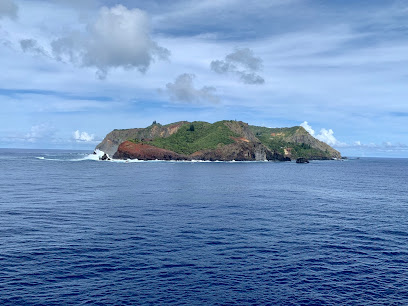
The Bounty Anchor
Explore the captivating history of The Bounty Anchor in Adamstown, a must-see landmark that tells the tales of maritime adventure and resilience.

Pitcairn Islands Museum
Explore the history and culture of the Pitcairn Islands at the engaging and informative Pitcairn Islands Museum in Adamstown.
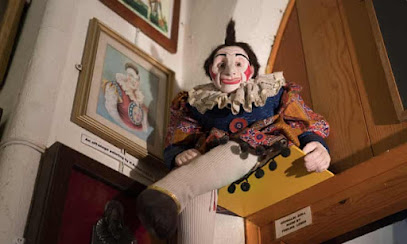
St. Paul's Pool
Experience the breathtaking beauty of St. Paul's Pool on the Pitcairn Islands, a hidden gem for swimming and snorkeling enthusiasts.
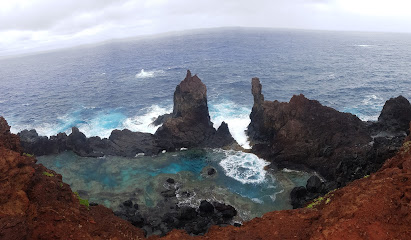
Christian's Cave
Discover the historical beauty of Christian's Cave, a captivating landmark offering a glimpse into the geological and cultural heritage of the region.
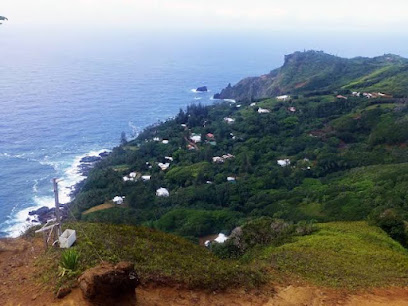
Bounty Bay
Experience the serene beauty of Bounty Bay, a tranquil paradise perfect for relaxation, adventure, and breathtaking sunsets in a stunning natural setting.
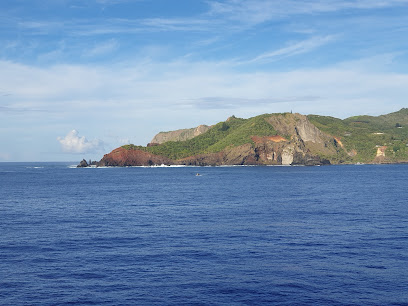
Plas Pitcairn Chalet
Discover the charm of Plas Pitcairn Chalet, a cozy bed and breakfast in Adamstown that offers a warm welcome and a taste of local culture.
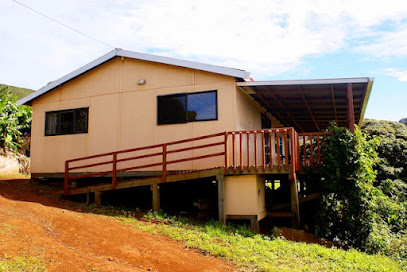
Pitcairn Island's Western Point
Experience the breathtaking landscapes and rich maritime history of Pitcairn Island's Western Point, a hidden gem in the Pacific Ocean.

Unmissable attractions to see
Christian's Cave
Explore Christian's Cave, a historical landmark on Pitcairn Island, rich in captivating stories and breathtaking natural beauty.
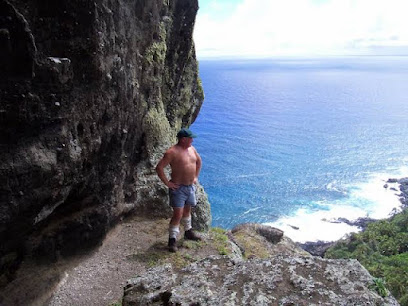
The Bounty Anchor
Explore The Bounty Anchor in Adamstown, an iconic historical landmark embodying Pitcairn Island's rich maritime history and adventure.

Pitcairn Islands Museum
Explore the captivating history and culture of the Pitcairn Islands at the Pitcairn Islands Museum, a must-visit for every traveler.
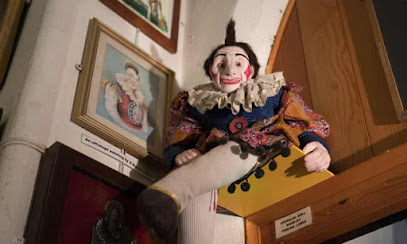
Bounty Bay
Discover the breathtaking beauty of Bounty Bay, a tropical paradise in French Polynesia, perfect for relaxation and adventure.
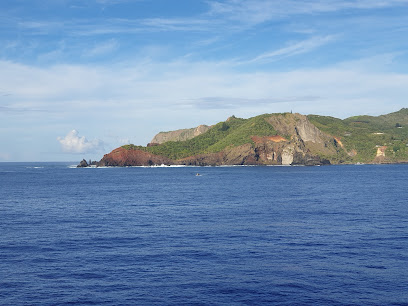
Pitcairn Island's Western Point
Experience the breathtaking cliffs and rich history at Pitcairn Island's Western Point, a hidden gem for adventure seekers and nature lovers.

Essential places to dine
Pitcairn Islands Museum
Explore the captivating history and culture at Pitcairn Islands Museum - a gem in Adamstown showcasing unique artifacts and stories from this remote island.
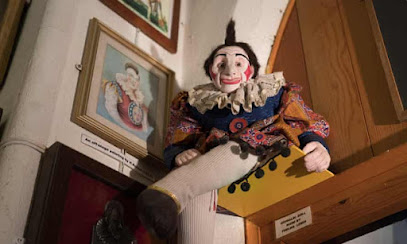
Bounty Bay
Experience the tranquil beauty of Bounty Bay – where azure waters meet lush landscapes in an idyllic paradise.
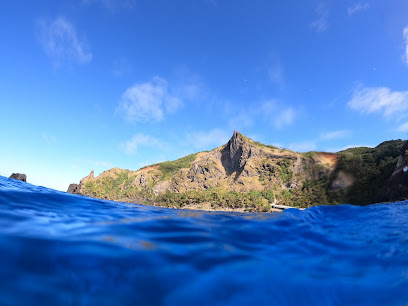
Markets, malls and hidden boutiques
Christian's Cave
Explore Christian's Cave: A Historic Landmark on Pitcairn Island Showcasing Nature's Wonders and Rich Cultural Heritage.
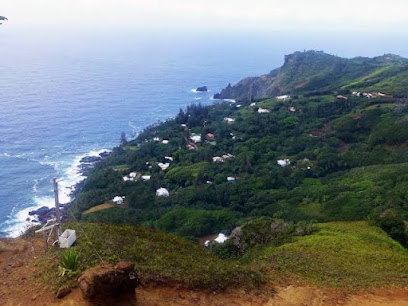
Pitcairn Islands Museum
Discover the captivating history of the Pitcairn Islands at the Pitcairn Islands Museum, where tales of mutineers and island life come alive.
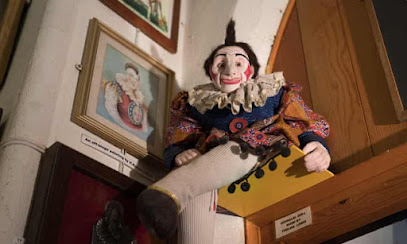
St. Paul's Pool
Immerse yourself in the serene beauty of St. Paul's Pool, a hidden paradise on the Pitcairn Islands, perfect for nature lovers and adventurers alike.
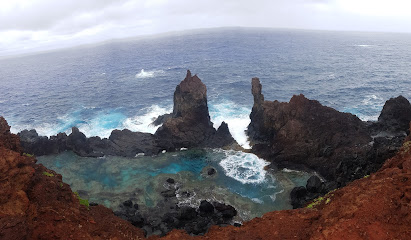
Bounty Bay
Experience tranquility and adventure at Bounty Bay, a stunning destination where crystal-clear waters meet vibrant marine life.
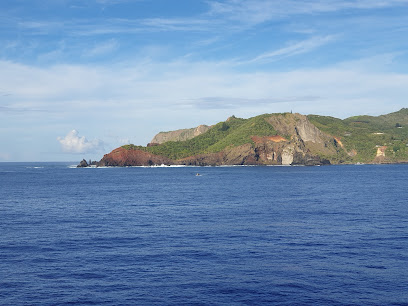
Essential bars & hidden hideouts
Pitcairn Island
Explore the enchanting Pitcairn Island, where history, culture, and nature converge in a breathtaking Pacific paradise.
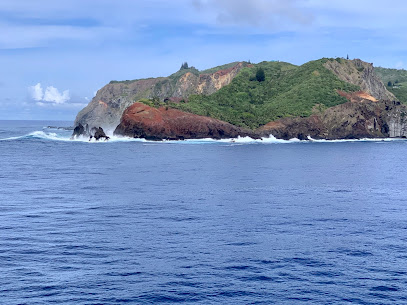
The Bounty Anchor
Discover the captivating history of The Bounty Anchor, a landmark telling the tales of the HMS Bounty and Pitcairn Island's unique maritime heritage.

St. Paul's Pool
Experience the tranquil beauty of St. Paul's Pool in the Pitcairn Islands, a hidden gem for relaxation and exploration.
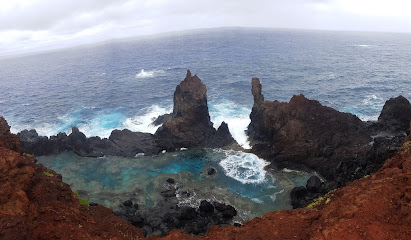
Pitcairn Islands Museum
Explore the intriguing history and culture of the Pitcairn Islands at the captivating Pitcairn Islands Museum in Adamstown.
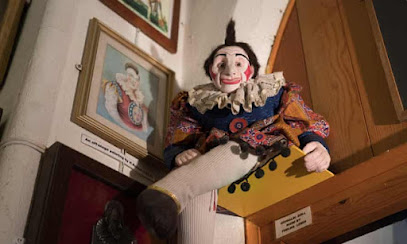
Christian's Cave
Discover the enchanting beauty and rich history of Christian's Cave, a must-visit historical landmark nestled in breathtaking surroundings.
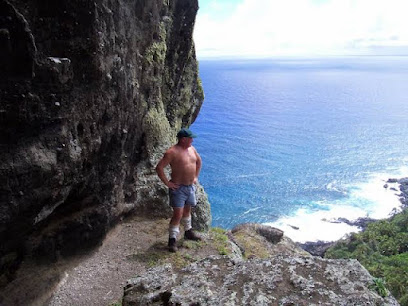
Bounty Bay
Discover the serene beauty of Bounty Bay, a tranquil escape in the Pacific perfect for relaxation and adventure.
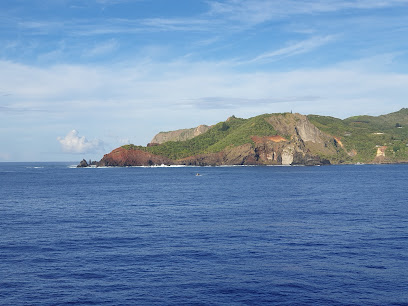
Local Phrases
-
- HelloAllo
[ah-loh] - GoodbyeTa ta
[tah tah] - YesAe
[ay] - NoNae
[nay] - Please/You're welcomePlis
[plees] - Thank youTankiu
[tan-kyoo] - Excuse me/SorrySori
[saw-ree] - How are you?Ow yu duin?
[ow yoo doo-in] - Fine. And you?Gud. An yu?
[good. an yoo] - Do you speak English?Yu spik Inglish?
[yoo speek in-glish] - I don't understandMi no save
[mee no sah-veh]
- HelloAllo
-
- I'd like to see the menu, pleaseMi laik fo si di menyoo, plis
[mee like foh see dee meh-nyoo, plees] - I don't eat meatMi no iet mit
[mee no eet meet] - Cheers!Chis!
[cheers] - I would like to pay, pleaseMi laik fo pei, plis
[mee like foh pay, plees]
- I'd like to see the menu, pleaseMi laik fo si di menyoo, plis
-
- Help!Elp!
[elp] - Go away!Go awe!
[go ah-way] - Call the Police!Kaal di Polis!
[kaal dee po-lees] - Call a doctor!Kaal a daktar!
[kaal ah dak-tar] - I'm lostMi los
[mee loss] - I'm illMi il
[mee eel]
- Help!Elp!
-
- I'd like to buy...Mi laik fo bai...
[mee like foh buy] - I'm just lookingMi jas luki
[mee jahs look-ee] - How much is it?Ha moch dis?
[hah moch dees] - That's too expensiveDat tu ekspensiv
[dat too ex-pen-siv] - Can you lower the price?Yu ken laua di prais?
[yoo ken low-ah dee price]
- I'd like to buy...Mi laik fo bai...
-
- What time is it?Wa taim it is?
[wah time it ees] - It's one o'clockIt is wan o'klak
[it ees wahn oh-klok] - Half past (10)Haf past (10)
[hahf past (10)] - MorningMawnin
[mawn-in] - AfternoonAftanun
[af-tah-noon] - EveningIvinin
[eev-in-in] - YesterdayYestade
[yes-tah-day] - TodayTudei
[too-day] - TomorrowTamara
[ta-mah-rah] - 1Wan
[wahn] - 2Tu
[too] - 3Tri
[tree] - 4Fuor
[foo-or] - 5Faiv
[fayv] - 6Siks
[siks] - 7Seven
[sev-en] - 8Eit
[ate] - 9Nain
[nayn] - 10Ten
[ten]
- What time is it?Wa taim it is?
-
- Where's a/the...?Wea di...?
[wee-ah dee...] - What's the address?Wat a di adres?
[wut ah dee ah-dress] - Can you show me (on the map)?Yu shuo mi (on di map)?
[yoo show mee (on dee map)] - When's the next (bus)?Wen di neks (bas)?
[wen dee neks (bus)] - A ticket (to ....)A tiket (tu ....)
[ah tee-ket (to)]
- Where's a/the...?Wea di...?
History of Bounty Bay Settlement
-
In 1789, the HMS Bounty, led by Captain William Bligh, experienced one of the most famous mutinies in maritime history. Led by Fletcher Christian, the mutineers seized control of the ship and eventually sought refuge on Pitcairn Island. Bounty Bay Settlement is named after this historic ship, which was set ablaze and sunk by the mutineers to avoid detection.
-
After the mutiny, Fletcher Christian and his fellow mutineers, along with a group of Tahitian men and women, settled on Pitcairn Island in January 1790. The isolation of the island provided a safe haven away from British naval pursuit. The community struggled initially but eventually established a sustainable way of life.
-
In 1808, Pitcairn Island was discovered by Captain Mayhew Folger of the American sealing ship Topaz. He found the descendants of the original mutineers living on the island and reported their existence to the outside world, bringing international attention to the small settlement for the first time.
-
In 1838, Pitcairn Island officially became a British colony. The islanders, who were primarily descendants of the Bounty mutineers, welcomed the British governance, which provided them with a sense of security and connection to the outside world. This marked the beginning of more structured administration and external support.
-
In the late 19th century, the influence of the Seventh-day Adventist Church reached Pitcairn Island. The islanders converted to Adventism, which had a profound impact on their culture and daily life. The church's teachings contributed to the community's strong sense of morality and cohesion.
-
Today, Bounty Bay Settlement remains the only inhabited area on Pitcairn Island. The community is small, with around 50 residents, but they maintain a rich cultural heritage. The islanders continue to live relatively isolated lives, relying on subsistence farming, fishing, and the sale of unique Pitcairn crafts to visitors and collectors. The settlement is a living testament to the island's storied past and resilient present.
Bounty Bay Settlement Essentials
-
Reaching Bounty Bay Settlement on the Pitcairn Islands requires a bit of planning due to its remote location. The most common way to get there is by sea. Cruise ships occasionally stop at Pitcairn, but the most reliable option is to arrange passage on a cargo ship from New Zealand. The journey from New Zealand takes about 10 days. You can also charter a yacht from French Polynesia. There is no airport on Pitcairn Island, so air travel is not an option.
-
Once you arrive at Bounty Bay Settlement, transportation options are limited. The settlement is small enough to explore on foot. There are no public transport services or car rentals, but quad bikes are available for hire. These are the primary mode of transport for the locals and can be a fun way to get around the island.
-
The official currency on the Pitcairn Islands is the New Zealand Dollar (NZD). Credit cards are not widely accepted, so it is essential to carry enough cash for your stay. There are no ATMs, so ensure you bring sufficient funds with you. Some local services accept bank transfers, but it's best to check in advance.
-
Bounty Bay Settlement is generally very safe, with a close-knit community and low crime rates. However, standard travel precautions are advised. Always keep an eye on your belongings and avoid isolated areas at night. The island community is small, and everyone knows each other, which adds to the sense of security.
-
In case of an emergency, contact the local authorities immediately. There is a small medical clinic on the island that can handle minor health issues. For more serious medical emergencies, evacuation to a larger medical facility in New Zealand may be necessary. It is highly recommended to have comprehensive travel insurance that covers medical evacuation. The emergency contact number is 999.
-
Fashion: Do dress modestly, as the community is conservative. Avoid overly revealing clothing. Religion: Do respect local religious practices and attend community church services if invited. Public Transport: There is no public transport system, so be prepared to walk or hire a quad bike. Greetings: Do greet locals with a smile and a friendly 'hello.' The community values politeness and friendliness. Eating & Drinking: Do try the local dishes and accept food offerings graciously. Don’t refuse hospitality, as it is considered rude.
-
To experience Bounty Bay Settlement like a local, engage with the islanders. Participate in community activities and events if you have the opportunity. Visit the local museum to learn about the island’s history, particularly the story of the Bounty mutineers. Hiking is a popular activity, offering stunning views and a chance to see the island’s unique flora and fauna. Also, consider bringing small gifts or supplies for the islanders, as they appreciate such gestures.
Nearby Cities to Bounty Bay Settlement
-
Things To Do in Marquesas Islands
-
Things To Do in Nuku Hiva
-
Things To Do in Rangiroa
-
Things To Do in Tahiti
-
Things To Do in Papeete
-
Things To Do in Moorea
-
Things To Do in Tetiaroa
-
Things To Do in Huahine
-
Things To Do in Raiatea
-
Things To Do in Bora Bora
-
Things To Do in Maupiti
-
Things To Do in Muri
-
Things To Do in Ngatangiia
-
Things To Do in Matavera
-
Things To Do in Takitumu







